“Nature doesn’t care if you’re gay or straight”: meet the gay farmers queering agriculture
Rural isolation and outdated attitudes can make agricultural life a struggle for gay and queer men. Here, four LGBTQIA+ farmers open up about their experiences WORDS BY RYAN CAHILL PHOTOGRAPHY… The post “Nature doesn’t care if you’re gay or straight”: meet the gay farmers queering agriculture appeared first on GAY TIMES.
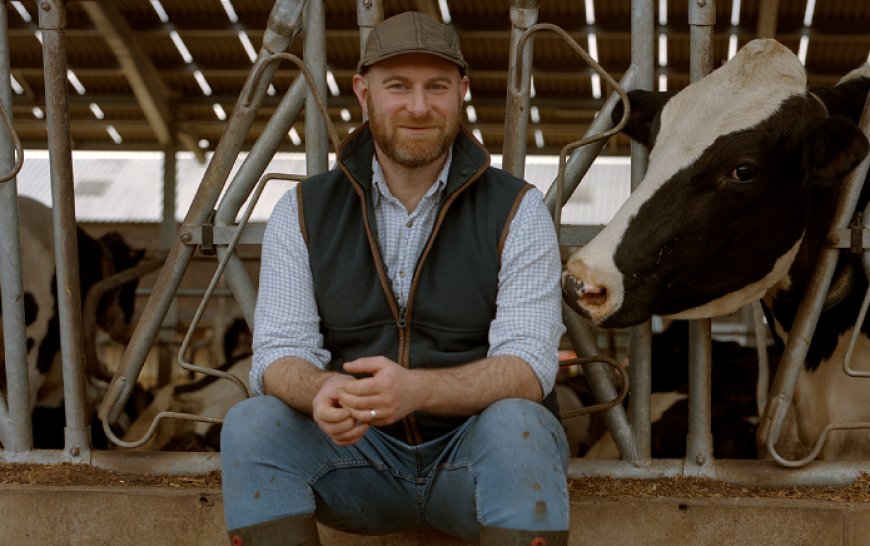
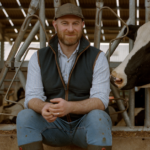
Rural isolation and outdated attitudes can make agricultural life a struggle for gay and queer men. Here, four LGBTQIA+ farmers open up about their experiences
WORDS BY RYAN CAHILL
PHOTOGRAPHY BY RICHARD DOWKER
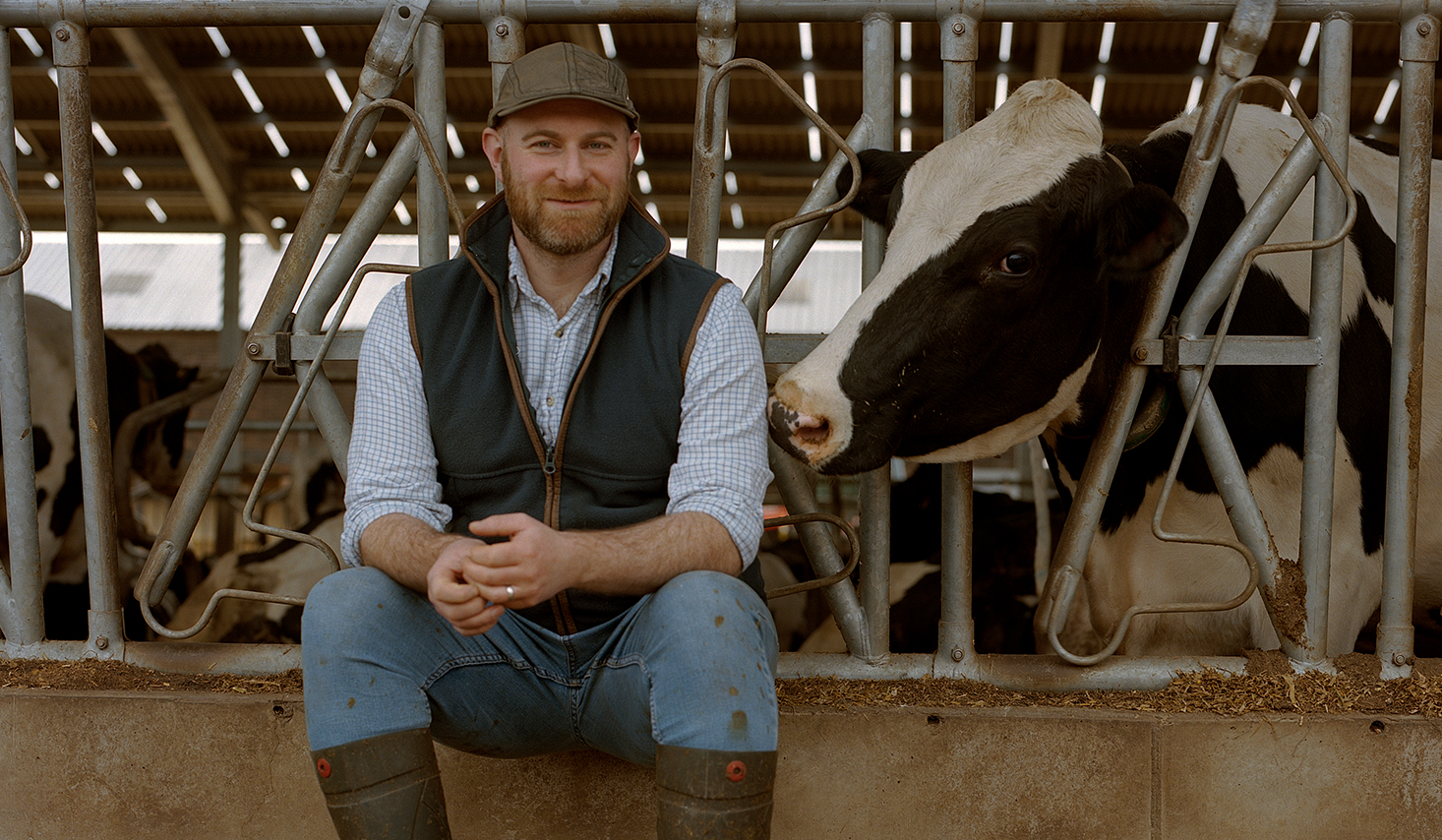
Back in 2017, the film God’s Own Country was released in the UK. Directed by Francis Lee in his film debut, the flick starred the brilliant Josh O’Connor in the lead role as a rural gay farmer who falls in love with his Romanian farm hand. With themes of isolation, homophobia and loneliness, it delivered a powerful message about the plight that farmers – and especially queer farmers – face in their day to day lives. But seven years on, has much really changed in the world of agriculture?
A parliamentary committee recently found that the government is being “complacent” regarding rural mental health, saying that farmers are at a higher risk of mental ill health and suicide, in part caused by rural isolation, a lack of awareness and stigma surrounding a typically heteronormative industry. The same committee found that the COVID-19 pandemic and new policies may only contribute further to poor mental health within agriculture.
With many farms across the country being inherited, it’s easy to understand how certain ideologies continue to persevere through the decades – homogenous attitudes are passed down from generation to generation, meaning that there isn’t much of an opportunity to break the wheel.
But that doesn’t mean that people aren’t trying. In 2010, a helpline was launched to support gay farmers who might be struggling with their sexuality, and more recently, the rural LGBTQIA+ network Agrespect was launched to create wider awareness, offer support and champion diversity within farming. It’s a vital support system for rural agriculturalists living rurally across the country.
Richard Dowker, who photographed this portfolio, recalls being one of the only gay people at Young Farmers which he attended throughout his youth. “I grew up in Cumbria, in a family with a farming background surrounded by all things agriculture – so I would attend our local Young Farmers’ Club with other friends and it was a good laugh with my girls most of the time.” He says. “However there were moments where I felt lonely, out of place and that I didn’t belong, due to the very obvious lack of fellow LGBTQIA+ and the occasional queer-bashing jokes.
I definitely knew that I didn’t want to follow my dad’s farming path from a young age but also I didn’t really see it as an accepting place, even if I had wanted to. 15 years later, this project was an opportunity to see what had changed and if time had made it more of an accepting community, a place where younger generations could feel more safe and welcome.”
Over the next few pages, we hear stories from four brilliant farmers spanning different generations to understand the current landscape when it comes to LGBTQIA+ lives in farming, and what is in store for the next generation.
To contact the Gay Farmer Helpline, call 07837931894. Further support can also be found at https://agrespect.com/
John Porter, 47
John Porter has been involved with farming for as long as he can remember. He’s had farmers in his family dating as far back as the 1700s, so agriculture is very much in the blood.
Throughout his early years, John followed the tradition of other men in his family. He learned how to milk cows, drive a tractor and eventually got married and had children with his then-wife – but he always felt that something was missing. “I thought it was quite normal that I found men attractive, but didn’t really think I would ever act on it.” He says. “My marriage eventually broke down through various outside forces. I had watched a soap and somebody had Grindr. I got an iPhone and I had a look. It was like opening Pandora’s Box when you download an app like that.”
After John’s first hookup, he said that he went through an identity crisis, experiencing a plethora of emotions and questioning whether it was “right” to be acting on such feelings and having a sense of guilt, which had an impact on his mental health. These emotions led him to utilising the Gay Farmers Helpline as an important resource for advice and support during a time when he was struggling with his sexuality. He says that the helpline was “vital” for him.
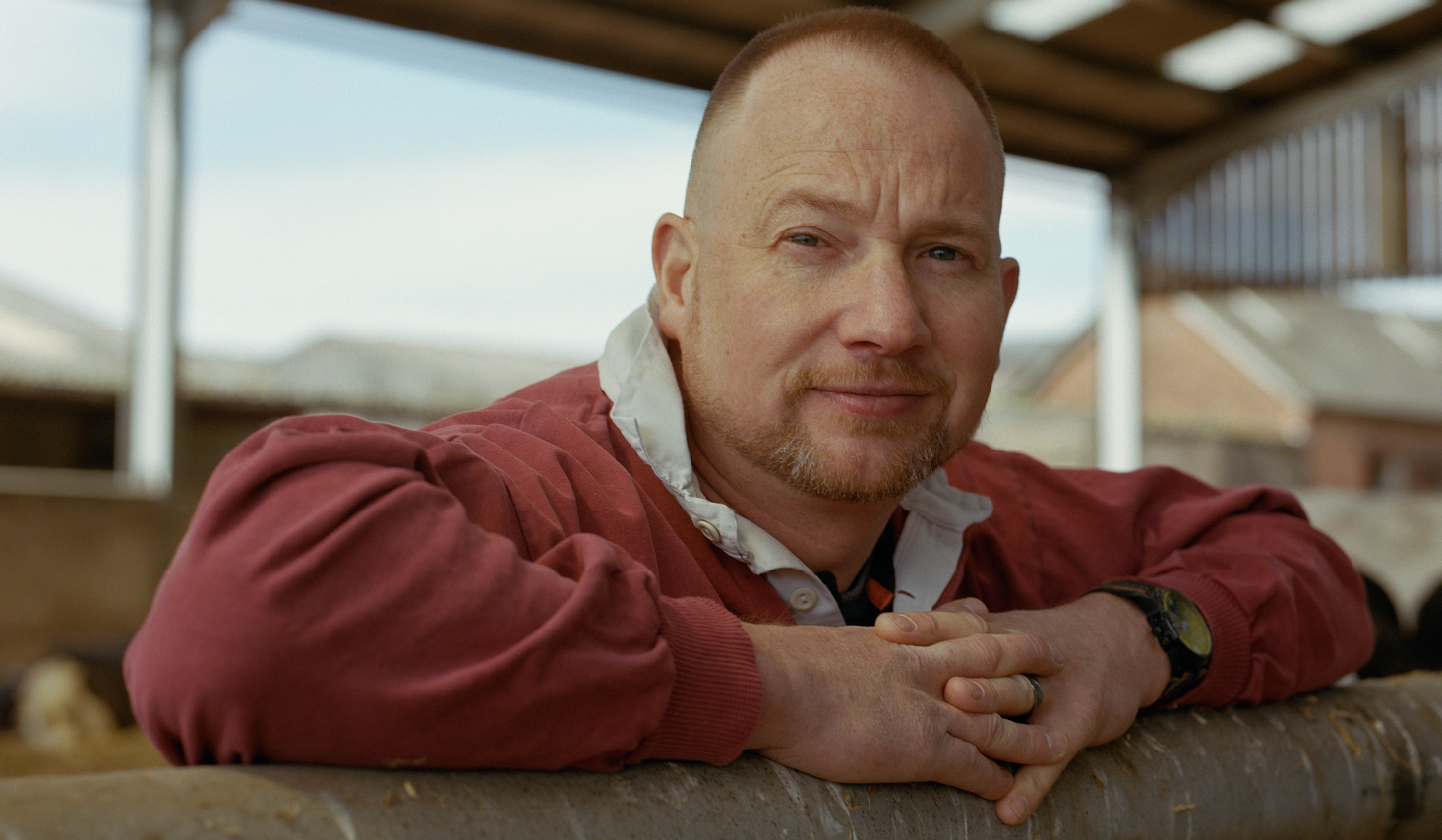
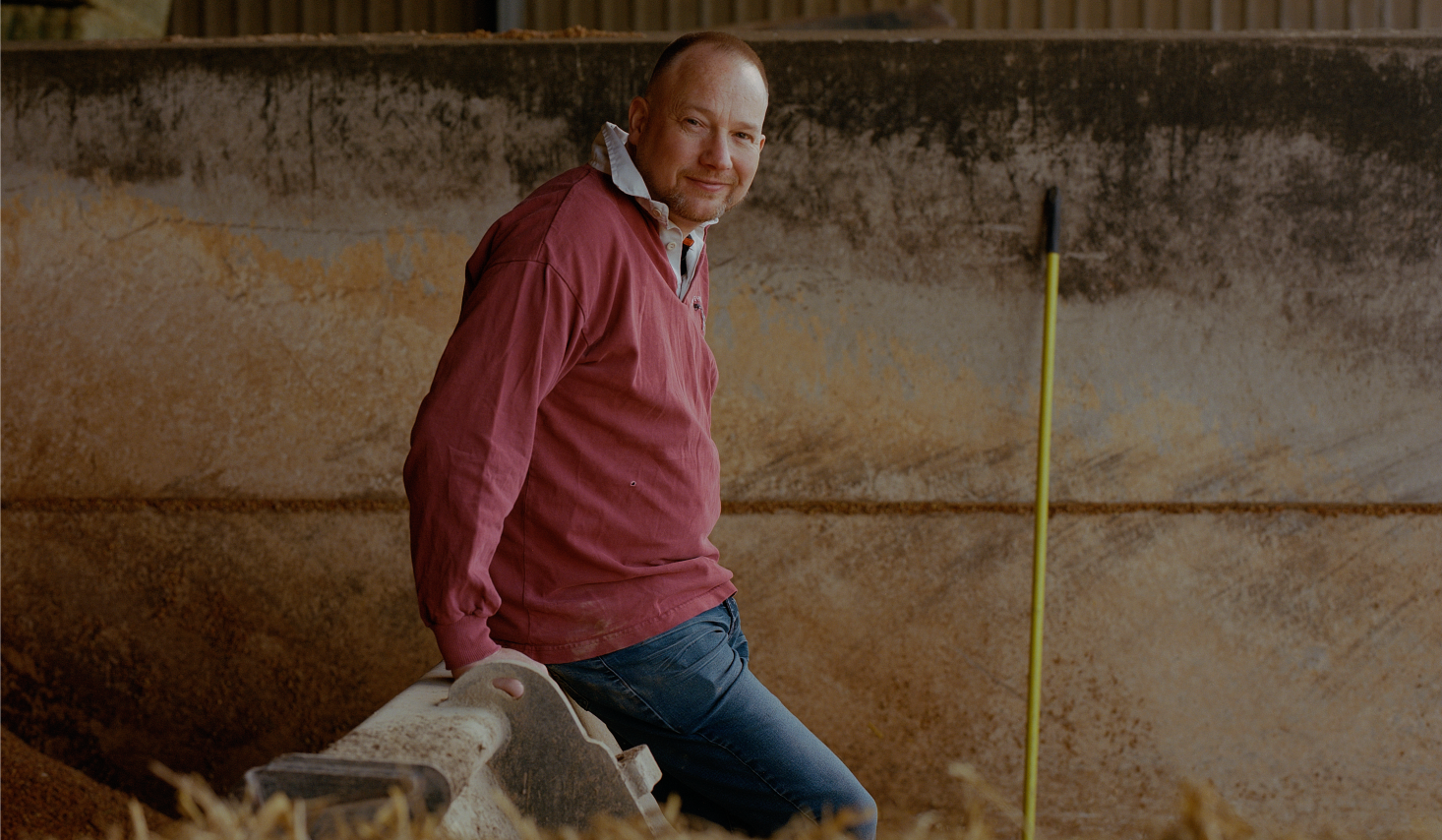
“I was at a stage where I felt totally alone. I was leading a double life and it was exhausting.” He shares. “The helpline showed me that it was okay to be me, that I wasn’t alone and there were lots of people that were in the same boat as me.”
After eventually reaching self-acceptance, John decided to come out at the age of 34. He tells me although he initially felt like he might “lose everything” as a result of coming out, it was the best decision he ever made, and since then has been able to live his life to the fullest.
The helpline showed me that it was okay to be me, that I wasn’t alone
Stories like his though, are not totally uncommon in the world of farming, as John explains: “There are a lot of farmers in their late 40s, 50s, even 60s, who had married a woman on a family farm and they wanted to leave but say they can’t leave because they’d get nothing. They’re stuck in a place where they’re doing a job which is quite physically and mentally demanding, they’re with a person that they don’t want to particularly be with, they can’t be themselves entirely and as a result people commit suicide.”
John is hopeful that through more open conversations and wider visibility within agriculture, this will no longer be the case, and farming will continue to become a place of acceptance. He believes that we’re already on the right path for seeing that change. “I think today, as opposed to 20 years ago, it’s acceptable and queer men and women aren’t ostracised, so more queer people should feel safe to enter farming. It’s also a great job. It’s so varied and no day is ever the same. When the sun’s shining, you can be in no better place than outside on the farm.”
Gareth Hales-Povey, 40
“I’m in the yard at 4am and the sun’s just peeking up. It’s quite a grounding experience. I’m proud of being able to do it because I never saw myself doing this.” says Gareth Hales-Povey. He is relatively new to the world of farming. After being furloughed from his job in hospitality and management during the COVID-19 pandemic, his husband encouraged him to pick up shifts at the local dairy farm, and since then, he’s not looked back.
The 40-year-old lives with his partner and two recently adopted children in a picturesque grade-II listed farmhouse. They have what you might describe as a “traditional country lifestyle”, and Gareth admits he’s reached a place of contentment living and working in the countryside.
When stepping into farming, he had heard about the prejudice that sometimes exists within the industry, but wasn’t too concerned about experiencing it himself. “I’m completely aware that it does go on. We’ve had friends that have had really negative experiences in the roles they’re in, and they’ve had to leave. On some farms, it’s not an issue, they just want you to turn up and do the job. But there’s these old fashioned prejudices that are still out there.” Gareth says. “I’ve not experienced it personally, but I know people that have. It’s been heartbreaking what they’ve been through, real emotional turmoil.”
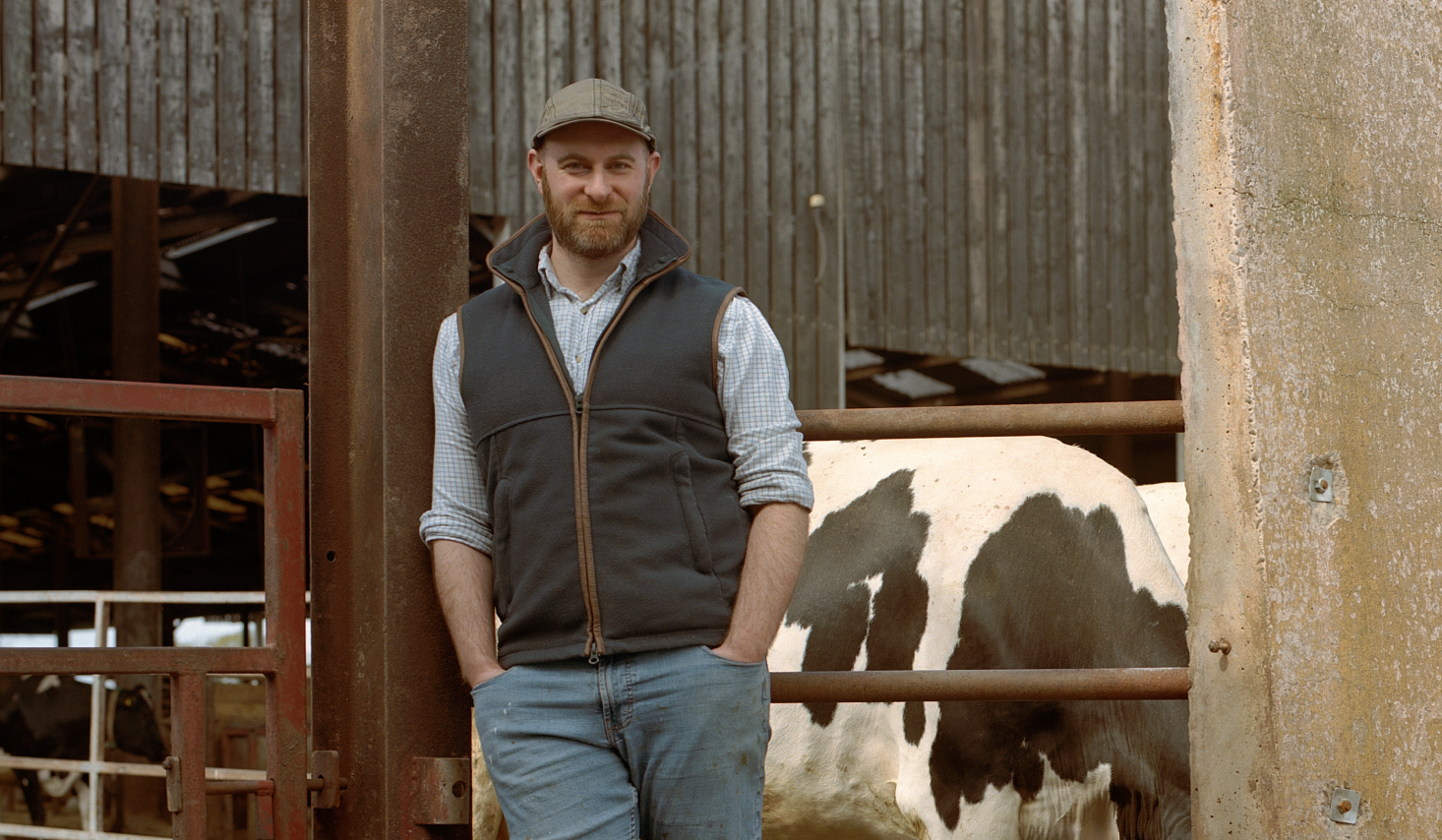
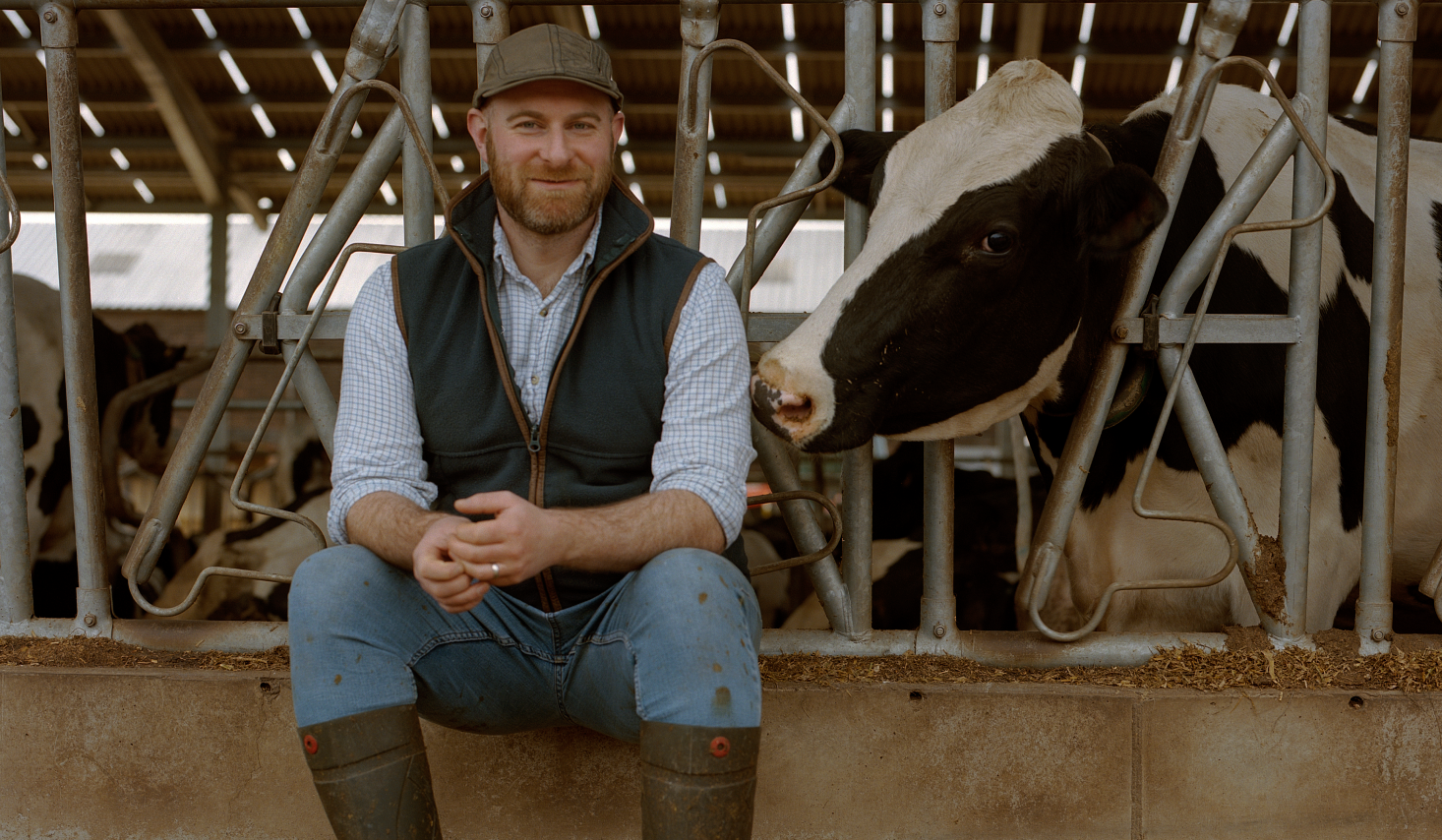
Gareth believes that with the help of major organisations like Young Farmers and the National Farmers’ Union, attitudes will continue to shift when it comes to the LGBTQIA+ community operating within agriculture. “There’s definitely a growing community out there. There’s also a group called Agrespect and they attend Prides all over Britain. They’re trying to promote queerness in agriculture and farming. So through that you do get to interact with people that are in a similar situation. I feel like attitudes are changing, but also a lot of farms are being run as businesses now. So, they have HR, you have inclusivity clauses in contracts, they encourage open thinking and open ways of working.”
I just get a buzz driving a tractor because it just feels so 180 of where I thought my life would be. I can make new friends from it and I can show queer communities that it can be done
Gareth feels like he’s finally found a home working within agriculture, saying that he is very “lucky to live and work” in the countryside. “It’s just very wholesome. I just get a buzz driving a tractor because it just feels so 180 of where I thought my life would be. I can make new friends from it and I can show queer communities that it can be done. It’s not going to be easy for everybody, but we’re out here representing and that is really important!”
Ben Andrews, 42
With acres of sprawling fields, picturesque red-bricked out-houses and an array of wildlife that you expect only to see in encyclopaedias, Ben Andrews grew up on an idyllic organic vegetable that has been in his family for decades. He recalls that much of his childhood was outside with his grandfather, spending endless hours in the fields checking livestock and fixing fences.
Despite being so heavily embroiled in the world of farming from such a young age, he was unsure if there would be a place for him within agriculture as a gay man. “I think a lot of the stigma was internal. I thought that I’m never going to be able to reconcile these two parts of my life.” He explains. “There is still going to be some homophobia and transphobia, and there will still be people maybe talking about me behind my back, but I don’t really care what people say about me. I can’t change being gay so it doesn’t bother me, but if you tell me I’m a shit farmer, I’m going to get upset about that!”
Ben was one of the founding members of Agrespect, a network aiming to promote and increase inclusivity within farming and agriculture. Inspired by a Country File feature about the Gay Farmers Helpline, the network was an opportunity to offer wider support to queer and rural farmers. “There’s no membership, there’s no committee, it’s a Facebook group, a Whatsapp group and we occasionally organise a Pride march!” He says modestly. “There’s no gatekeeper to the branding. If somebody wants to go and do their local Pride and they want to make up a load of banners that say Agrespect on them, it’s just like ‘yeah go for it, do whatever you want!’”
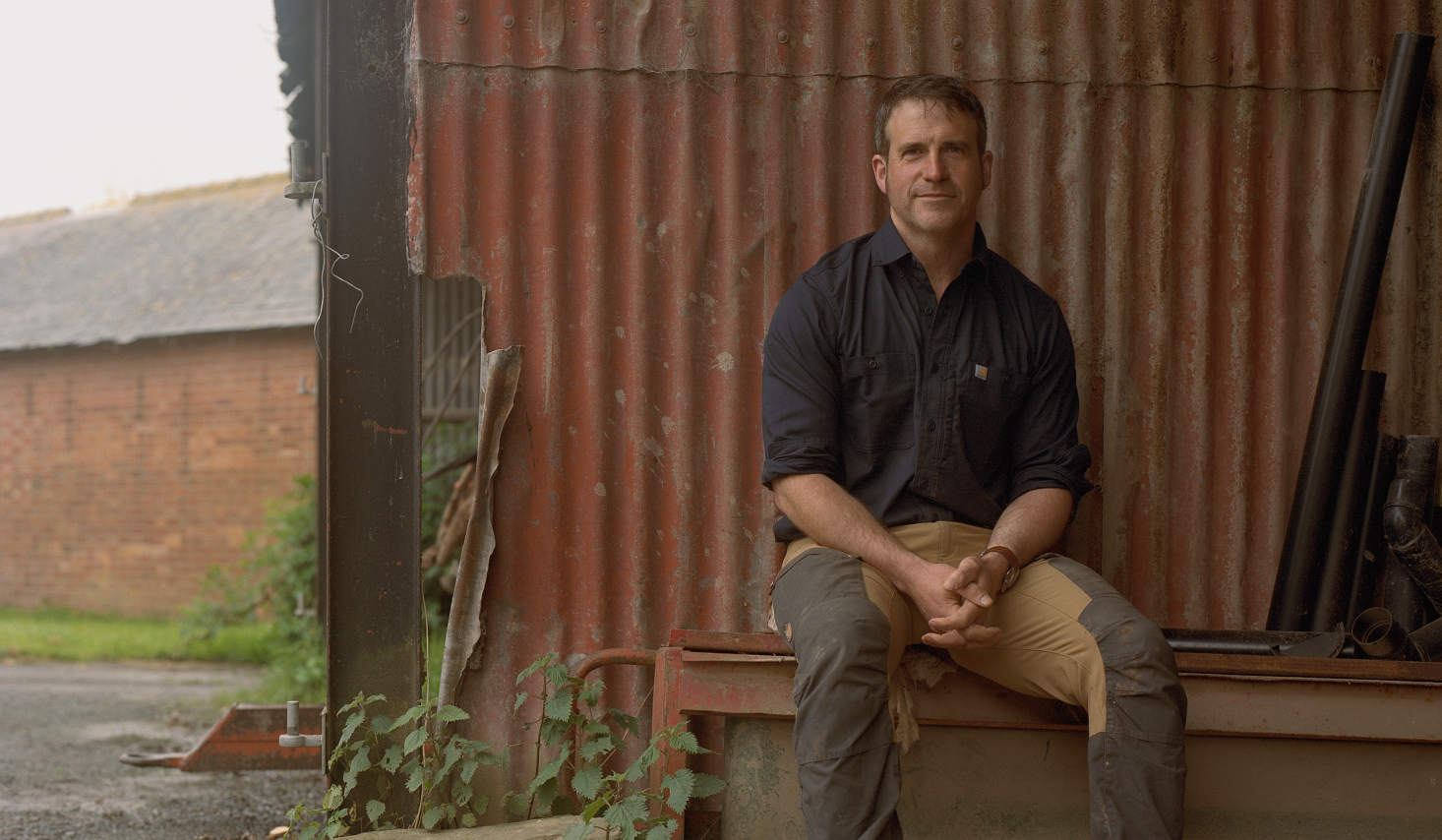
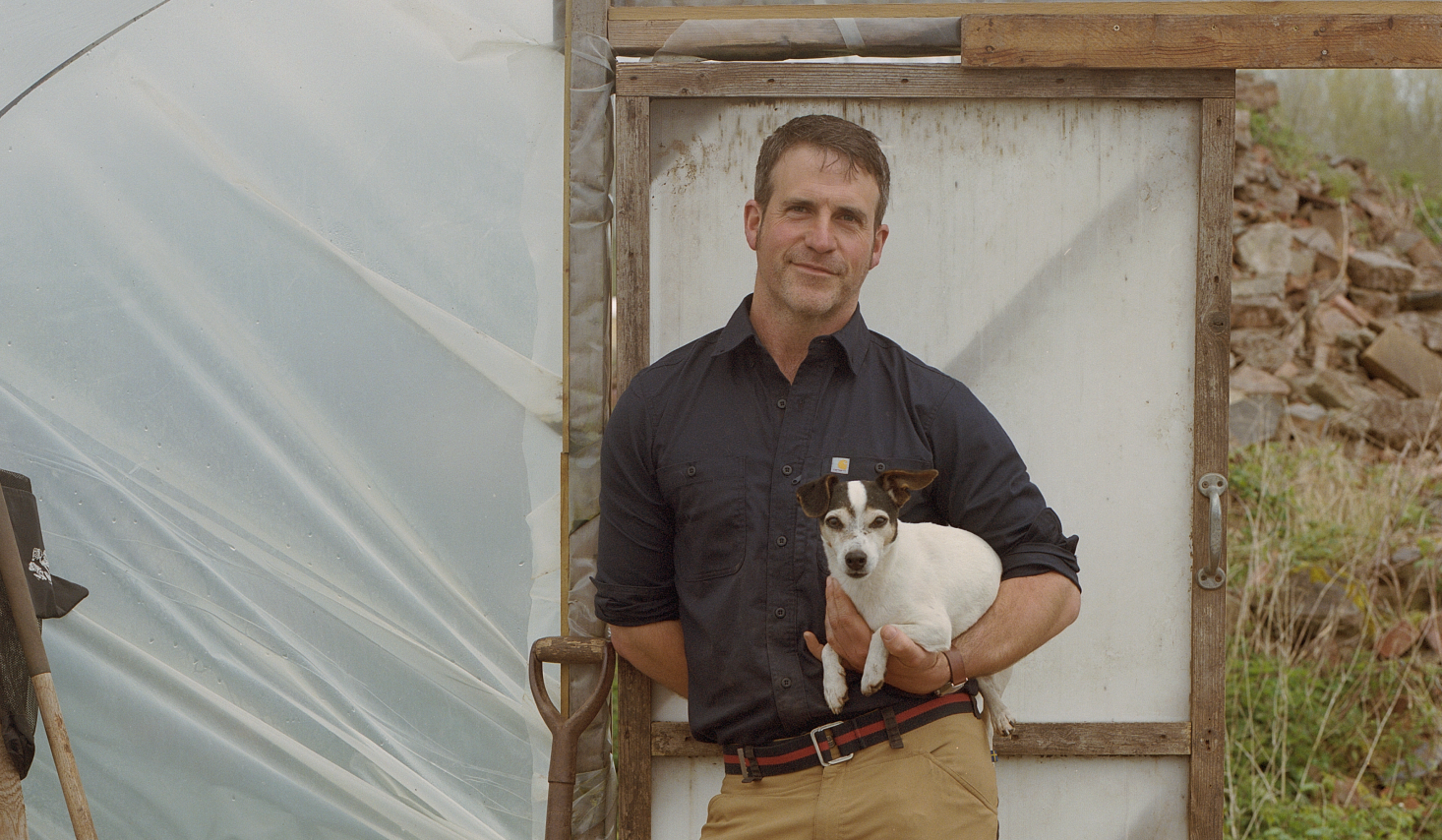
With an ever-growing Instagram following of over 80,000 followers, he’s become a familiar face within the farming community. His platform has meant that he’s been able to visit various colleges and universities to give informative talks about agriculture, and particularly queer people working within the industry. It’s people like Ben who are helping to shape the future of agriculture and create a better landscape for upcoming generations.
As for his own journey, he’s been through some vast changes in the past few years. After separating from his long-term partner two years ago, his relationship with the rural landscape has shifted slightly. He still loves farm life, but it’s giving him a form of catharsis and tranquillity in a way that it hadn’t before.
One of the most important things to remember is that nature doesn’t judge. It doesn’t care where you’re from, it doesn’t care if you’re gay or straight or trans
“One of the most important things to remember is that nature doesn’t judge. It doesn’t care where you’re from, it doesn’t care if you’re gay or straight or trans. It’s just there, it’s doing its thing and however stressed you are, nature doesn’t stop. There’s so much stuff that’s out of my control and there’s nothing I can do about it, but I’m just along for the ride and try to see how beautiful and wonderful it can be.”
Robert Houghton, 25
At 25, Rob Houghton represents a new generation of queer farmers who will shape the world of agriculture. His generation will start to feel the benefit of the work done by the generations that came before him in helping ensure that people like him have a space within the industry.
Rob’s interest in farming initially started with horses, which he has a strong passion for. His brothers were also involved in different aspects of farming which he always found interesting, and he describes his childhood set-up as a “rural family”. “I just always loved doing things outside and working with the animals. I love the quiet as well,” he says of why he loves farming. “It’s definitely not the early mornings though!”
Rob has been out to his close family and friends since he was 18, and has been confident and secure with his sexuality for as long as he can remember. That said, he still acknowledges the initial anxiety that comes with queer farmers entering the business, saying that a lot of that worry comes from working with older and potentially close-minded peers. He feels that a lot of unacceptance within farming is based around archaic stereotypes about gay men.
There is obviously this stigma that you have to be a straight manly person. They think that if you’re gay, you’re going to squeal but it doesn’t happen
“There is obviously this stigma that you have to be a straight manly person. They think that if you’re gay, you’re going to squeal but it doesn’t happen.” He explains. “20 or 30 years ago, farming was always a family thing – that idea that a farmer has a wife and kids and eventually the kids work on the farm. That still plays a part in the stigma.”
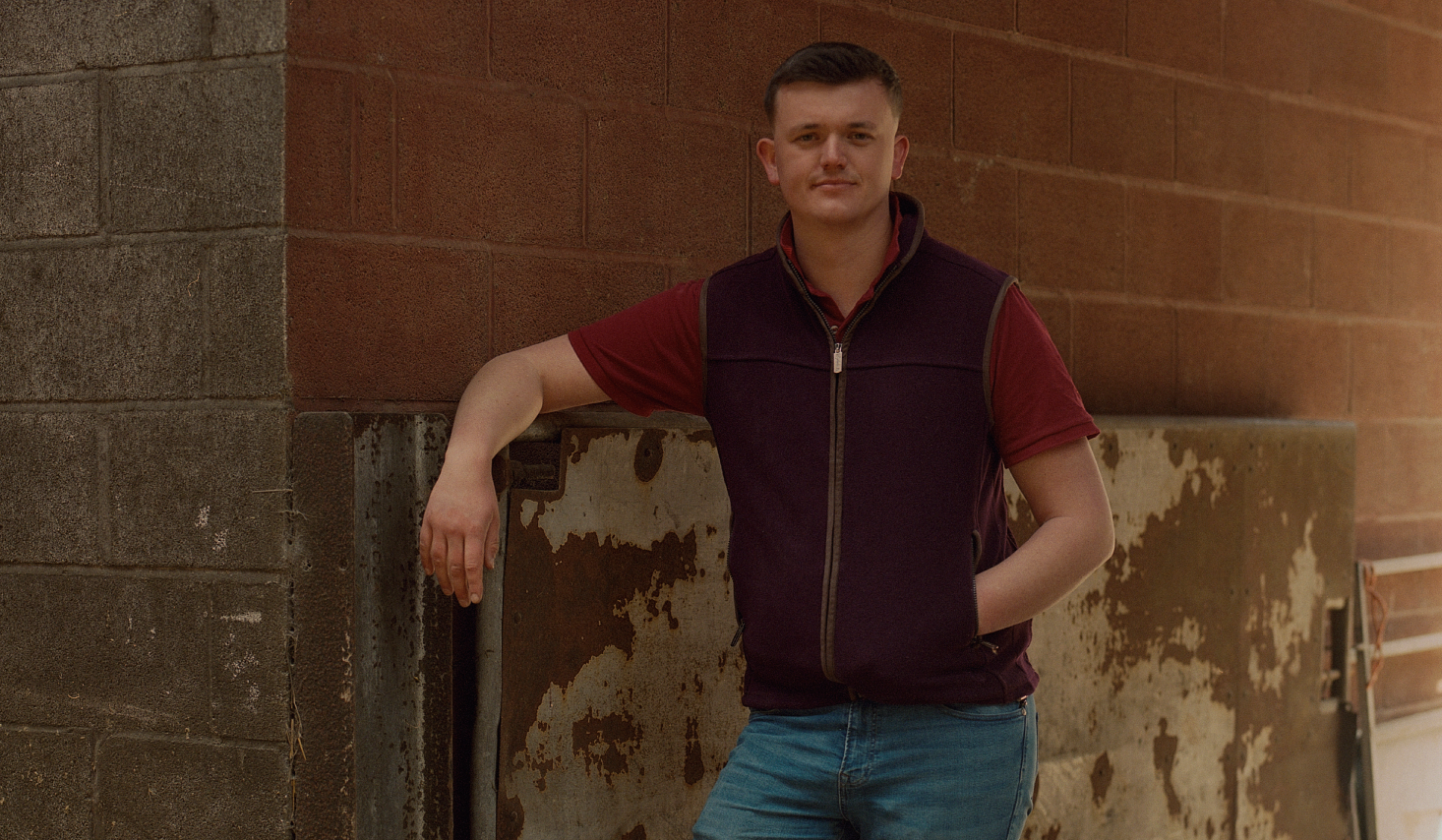
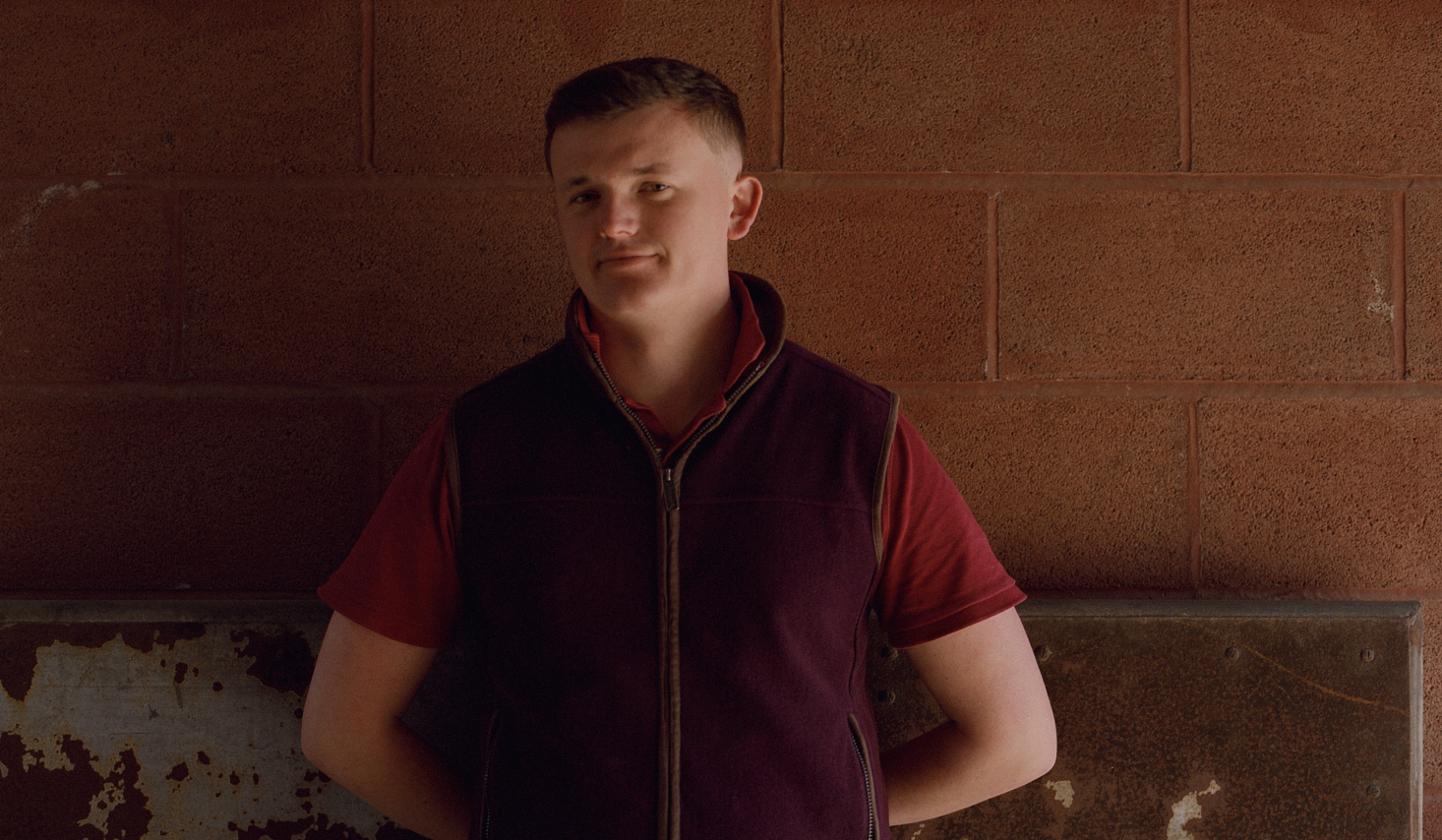
Despite recognising that prejudices can exist in certain farms, it isn’t something that Rob has had any personal experience of, and he’s made great connections with colleagues at work. He has a very straightforward approach to handling a lack of acceptance that he might feel from coworkers, telling me: “I think there are people that haven’t liked it. But I just think ‘I am here to work, if you don’t like it, don’t talk to me. I’m going to do my stuff, you do your own stuff.’”
With resources like Agrespect, the Gay Farmers Helpful and new initiatives and support being driven by the likes of the National Union of Farmers and Young Farmers, inclusivity and acceptance seems to be at the forefront of farming right now.
There’s undeniably a stigma that still exists to some degree, and that regrettably is passed on through the generations, but the prevalence of queer people working in agriculture is on the rise. We just need more young people like Rob, who are unapologetic and undefined by their sexuality, to show others that there is a space for queer people within the industry, and they can do so without fear of prejudice or judgement.
As for his take on the future of farming for queer people, Rob is realistic and optimistic: “I think people don’t need to worry. It’s very rare that you get people that won’t accept you in farming. If you really want to be into farming, just crack on! You’ll love it.”
The post “Nature doesn’t care if you’re gay or straight”: meet the gay farmers queering agriculture appeared first on GAY TIMES.

 Mark
Mark 





